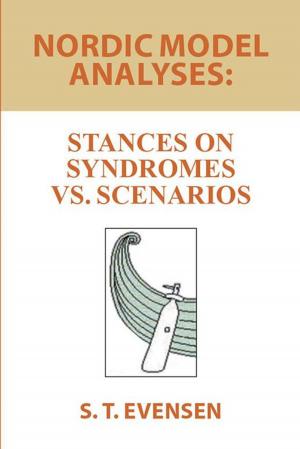| Author: | Robert Rose | ISBN: | 9781462831647 |
| Publisher: | Xlibris US | Publication: | September 20, 2001 |
| Imprint: | Xlibris US | Language: | English |
| Author: | Robert Rose |
| ISBN: | 9781462831647 |
| Publisher: | Xlibris US |
| Publication: | September 20, 2001 |
| Imprint: | Xlibris US |
| Language: | English |
Even though the incidents occurred in 1978, TEACHER UNDER A MICROSCOPE examines ongoing issues in education through the eyes and ears of trained observers and evaluators. They observe, comment, and critique everything I say and do.
The intake and exit interviews explore my philosophy of education as well as my comments and responses to their questions about what I actually did and why I did it. The conflicts between a disturbed principal (who was backed by the District) and me demonstrate the lack of balance of power in the schools. One of my main contentions is about the necessity of teacher autonomy. You see how I fight for it, not for me, but to better serve and teach my students. There are some basic questions asked and answered through the Observers interviews and protocol and the daily and weekly journals or commentaries I was asked to make. A few times I give you some overlapping of the same incidents as seen by the Observer and then in my journal so you can see them in greater depth.
First. What should life in the schools be like for the children and their caretakers teachers and support personnel? Second. What are the basic goals of public education and how should they be accomplished? Third. How much freedom or autonomy should a teacher have or needs to properly achieve these goals?
With the accountability movement gaining strength coupled with powerful back-to-basics and safe schools components, it appears the public believes schools should emphasize basic skills. To assure this happening testing is the rage to demonstrate that the students are achieving higher standards of skills and as a way to evaluate the effectiveness of each teacher.
Testing is reasonable and necessary as one way to determine what a student has learned and a teacher has taught. It is one way. It does not take the place of all the complex and useful things a teacher has learned about a student during the year. Often, because a student is learning English or is enduring serious emotional distress or has some type of learning handicap, the teacher is in the best position to know whether a test assesses accurately his skill levels, knowledge, or progress. When a single test is the only determiner of whether a child passes or fails, injustices occur. The same is true when the test results of the class are the only determiners of the teachers ability or success. The threat of being fired for the poor performance of a class will discourage even good teachers from taking classes or individual children who have academic or behavior problems. I have already read about and seen instances of teachers trying to insure they have more than their share of good and capable students. This stacking of a class will most affect new teachers (and their students) who have always suffered trial by fire. It makes good sense for the experienced teachers not to jeopardize their career, but is it ethical or good educational practice?
The positive aspect of mass testing and accountability is that more students are being exposed to a much wider variety of useful academic skills In many poverty areas the students, because of alleged or believed weak academic abilities, were limited in what was taught to them. Asking teachers to carefully examine what they teach and expecting them to know why as well as what they are teaching is a positive step for the profession...
It didnt just happen. Through years of trial and plenty of errors, I gradually found my teaching style. Through eclectic reading I brought into my classroom ideas and concepts from many disciplines. I found I was not an original thinker, but I was very good at taking the ideas of more gifted people and applying them in classroom situations. I took many concepts and techniques used for adults in the Human Potential M
Even though the incidents occurred in 1978, TEACHER UNDER A MICROSCOPE examines ongoing issues in education through the eyes and ears of trained observers and evaluators. They observe, comment, and critique everything I say and do.
The intake and exit interviews explore my philosophy of education as well as my comments and responses to their questions about what I actually did and why I did it. The conflicts between a disturbed principal (who was backed by the District) and me demonstrate the lack of balance of power in the schools. One of my main contentions is about the necessity of teacher autonomy. You see how I fight for it, not for me, but to better serve and teach my students. There are some basic questions asked and answered through the Observers interviews and protocol and the daily and weekly journals or commentaries I was asked to make. A few times I give you some overlapping of the same incidents as seen by the Observer and then in my journal so you can see them in greater depth.
First. What should life in the schools be like for the children and their caretakers teachers and support personnel? Second. What are the basic goals of public education and how should they be accomplished? Third. How much freedom or autonomy should a teacher have or needs to properly achieve these goals?
With the accountability movement gaining strength coupled with powerful back-to-basics and safe schools components, it appears the public believes schools should emphasize basic skills. To assure this happening testing is the rage to demonstrate that the students are achieving higher standards of skills and as a way to evaluate the effectiveness of each teacher.
Testing is reasonable and necessary as one way to determine what a student has learned and a teacher has taught. It is one way. It does not take the place of all the complex and useful things a teacher has learned about a student during the year. Often, because a student is learning English or is enduring serious emotional distress or has some type of learning handicap, the teacher is in the best position to know whether a test assesses accurately his skill levels, knowledge, or progress. When a single test is the only determiner of whether a child passes or fails, injustices occur. The same is true when the test results of the class are the only determiners of the teachers ability or success. The threat of being fired for the poor performance of a class will discourage even good teachers from taking classes or individual children who have academic or behavior problems. I have already read about and seen instances of teachers trying to insure they have more than their share of good and capable students. This stacking of a class will most affect new teachers (and their students) who have always suffered trial by fire. It makes good sense for the experienced teachers not to jeopardize their career, but is it ethical or good educational practice?
The positive aspect of mass testing and accountability is that more students are being exposed to a much wider variety of useful academic skills In many poverty areas the students, because of alleged or believed weak academic abilities, were limited in what was taught to them. Asking teachers to carefully examine what they teach and expecting them to know why as well as what they are teaching is a positive step for the profession...
It didnt just happen. Through years of trial and plenty of errors, I gradually found my teaching style. Through eclectic reading I brought into my classroom ideas and concepts from many disciplines. I found I was not an original thinker, but I was very good at taking the ideas of more gifted people and applying them in classroom situations. I took many concepts and techniques used for adults in the Human Potential M















